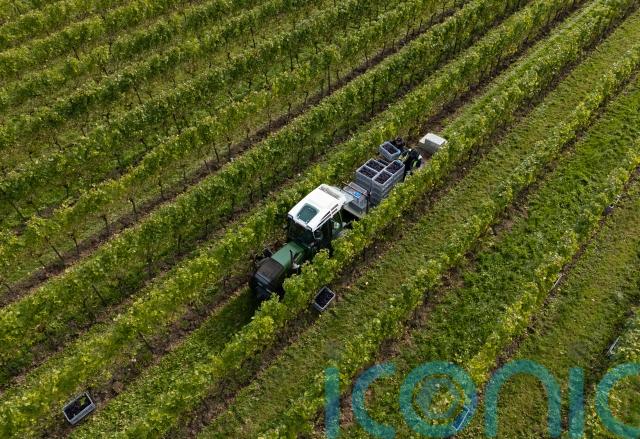
The future of coffee, chocolate and wine is at risk from climate change even with dramatic interventions to block sunlight from the Earth’s surface, a study warns.
Scientists have been exploring geoengineering as a way to cool the planet, including a hypothetical process to inject highly reflective particles into the stratosphere to cool the Earth’s surface.
The process – known as stratospheric sulphate aerosol injection (SAI) – could help to reflect some sunlight away from Earth, which is warming rapidly as carbon dioxide increases in the atmosphere because of human activities.
But climate scientists warned that even this strategy, which mimics the natural cooling effects of volcanic eruptions, may not be enough to save economically important crops such as wine grapes, coffee and the cacao beans that are used to make chocolate.

These crops require specific conditions and are increasingly vulnerable to the rising temperatures and worsening weather extremes of climate change, putting supplies of coffee, chocolate and wine at risk – and threatening the livelihoods of producers who depend on them for an income.
The researchers modelled what would happen to the climate in the top grape, coffee and cacao growing regions of western Europe, South America and West Africa if SAI was used to create a cooling effect.
In their study, published in the journal Environmental Research Letters, the scientists found that although the process could bring down temperatures, it could not consistently preserve the conditions needed for successful cultivation of the crops.
Unpredictable rainfall and humidity, which can for example cause flooding or pest and diseases that attack cacao plants, undermined the effectiveness of any cooling caused by SAI, the study found.
The assessment of crop suitability based on temperature, rainfall, humidity and disease risk across 18 regions between 2036 and 2045 found that only six regions showed a reliable improvement in growing conditions compared with a scenario without SAI.
The study’s co-author Dr Ariel Morrison, from the Colorado State University in the US, said: “SAI climate intervention may offer temporary relief from rising temperatures in some regions, but it is not a guaranteed fix for the challenges facing luxury crop farming.”
She warned reducing temperatures with SAI alone was not enough.
“For instance, cacao species, while more tolerant of hot temperatures than coffee and grapes, are highly susceptible to pests and diseases caused by a combination of high temperatures, rainfall, and humidity,” she said.
“Natural climate variability also cannot be ignored – it leads to a wide range of outcomes under the same SAI scenario that could affect the livelihoods of farmers growing cacao, coffee and grapes.”
Dr Morrison said strategies to adapt local areas to the new conditions, investment in resilient agricultural practices and global co-operation were essential to save the crops and the communities that relied on them.
Subscribe or register today to discover more from DonegalLive.ie
Buy the e-paper of the Donegal Democrat, Donegal People's Press, Donegal Post and Inish Times here for instant access to Donegal's premier news titles.
Keep up with the latest news from Donegal with our daily newsletter featuring the most important stories of the day delivered to your inbox every evening at 5pm.